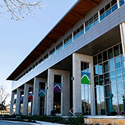DREAMers
The Alamo Colleges District believes that every student deserves a safe, welcoming, and inclusive environment to thrive during their academic journey. We support the various needs of Deferred Action for Childhood Arrivals (DREAMers) students by providing students and employees with the training, resources and knowledge needed to ensure that every DREAMer receives the support to successfully enroll, persist and graduate.
DREAMers ServicesImmigration Information on:
|
Highlights
|
DACA Renewals
DACA Renewals Now is a hub that provides links to DACA guides, a downloadable toolkit, graphics with renewal guidance and information on how to access renewal assistance from participating organizations.
Frequently Asked Questions (FAQs)
"DREAMer" is an inclusive term for undocumented individuals either with or without Deferred Action for Childhood Arrivals (DACA). DREAMers/undocumented students live in the U.S. and are neither U.S citizens, legal permanent residents, and do not hold a currently valid non-immigrant visa. Undocumented students may or may not have entered on a visa (i.e. B-1/B-2) or previously held legal permanent residency status
Deferred Action for Childhood Arrivals, also known as DACA is the name used for a process announced by the Secretary of Homeland Security on June 15, 2012, due to an executive order signed by former President Barack Obama. Although the U.S. Supreme Court ruled on June 18, 2020 to uphold DACA temporarily on a procedural issue, on July 16, 2021, a U.S. Federal District Court in the Southern District of Texas ruled that DACA could not process new applications for DACA.
Consistent with this order, DHS will continue to accept the filing of both initial and renewal DACA requests, as well as accompanying requests for employment authorization. However, pursuant to the July 16, 2021 order from the Southern District of Texas, DHS is prohibited from granting initial DACA requests and accompanying requests for employment authorization. Also consistent with that order, DHS will continue to grant or deny renewal DACA requests, according to existing policy.
Under the 2012 DACA policy, if you came to the United States as a child and met several key guidelines, you could file an application with the U.S. Citizenship and Immigration Services (USCIS), a branch of the Department of Homeland Security, to request consideration of deferred action.
"Deferred action" refers to a decision to defer (delay or put off) removal action of an individual. DACA may be granted by USCIS for a period of two years and may be renewed under certain circumstances. Deferred action does not provide an individual with lawful status; however, recipients of deferred action may obtain work authorization.
DACA students are individuals who applied for and received deferred action. DACA students typically are granted employment authorization and receive an employment authorization documented (EAD card). The EAD allows DACA students to apply for a Social Security Number and driver’s license.
No. DREAMers are not eligible for federal financial aid. However, depending on the state in which you are attending college or university, you may be eligible for state or college financial aid. In the state of Texas, Dreamers may apply for state aid via the Texas Application for State Financial Aid.
Yes. All students including DREAMers and undocumented students can apply for Federal Student Emergency Aid from the CARES, CRRSAA and ARP Act as outlined in updated guidance received the summer of 2021. Please visit alamo.edu/studentemergencyaid
Additional City of San Antonio resources can be found at sanantonio.gov/humanservices/ImmigrationServices
Yes. Texas was the first state to pass a law in 2001, House Bill 1403 (HB1403), sometimes referred to as the ‘Texas Dream Act’ which allows Dreamers to receive in-state tuition based on Texas residency. Later modified by Senate Bill 1528, an undocumented student is eligible for in-state tuition if they meet the following criteria:
-
Must have lived in Texas at least 3 years before receiving their High School (in Texas) diploma or GED
-
Must have lived in Texas at least 3 years before enrolling in a public college/university (in Texas)
-
Must fill out an affidavit declaring that he/she will apply for residency as soon as able to do so
In order to access this benefit, you will need to complete the Texas Application for State Financial Aid (TASFA). The TASFA is a financial aid application for students who are not U.S. Citizens, but who are Texas Residents. For more information on the TAFSA and how to complete the application, please visit our Financial Aid webpage.
Additional information:
Resources
-
Announcements
Statement from the Alamo Colleges District on Federal Court Ruling on DACA
For our DREAMers at the Alamo Colleges, please know that nothing in the order issued prevents you from continuing your education at any of our colleges.
On behalf of the Alamo Colleges District and our family of colleges - Northeast Lakeview College, Northwest Vista College, Palo Alto College, St. Philip's College and San Antonio College, we express our continued support for the Degerred Action for Childhood Arrival (DACA) program. We are here to support you on this journey and have resources available at our campuses to assist you. For more information on how to connect with our team, you can visit alamo.edu/district/daca or call 210-485-0280.
Immigrants play a vital role in our nation's economic success. DREAMers - immigrants brought to the U.S. as children - are eligible for the DACA program, which has been the center of years of litigation. This latest court decision only adds more confusion and frustration for DREAMers who have only know the United States are their home.
Focused on students and empowering our diverse communities for success, the Alamo Colleges leadership in 2017, and again in 2019, declared their support for our DREAMers students, faculty and staff, recognizing the valuable contributions they provide to the region. As part of this support, we established a DACA/DREAMers resource website and a districtwide DREAMers Advisory Council that consists of administrators, faculty, frontline staff, advisors/counselors and campus police, and enrollment support services tailored for DREAMers. We have also consistently included support for congressional action in our federal legislative agenda.
Our nation, and especially Texas, relies on and benefits from, the economic contributions of DREAMers. Approximately 101,000 DREAMers live in Texas, the second highest population of DREAMers nationwide. DREAMERS also matriculate in our Texas institutions of higher education at a high rate. These men and women contribute to the vitality of our economy, attend our colleges and universities, work in key industries and improve our quality of life.
Without a legislative solution to the DACA program, DREAMers, the schools they attend, and the businesses which employ them, will continue to face uncertainty about the future. Now more than ever, our community is relying on a stable workforce to make the everyday decisions that will contribute to the economic recovery of our region. DREAMers deserve a legislative solution that allows them to fully participate in our society.
We commit to our DREAMers students, faculty and staff to remain welcoming and open to all.
In service,
Roberto Zárate, Board Chair
Dr. Mike Flores, Chancellor
Dr. Veronica Garcia, President of Northeast Lakeview College
Debi Gaitan, Interim President of Northwest Vista College
Dr. Robert Garza, President of Palo Alto College
Dr. Adena Williams Loston, President of St. Philip's College
Dr. Francisco Solis, Interim President of San Antonio College- Informed Immigrant’s DACA Renewal Clinic Tracker
- Informed Immigrant’s How to Renew Your DACA in 2022
- United We Dream’s How to Easily Renew Your DACA in 2022
- United We Dream’s For DACA Recipients Who Need Support
-
- Alamo Colleges Foundation Scholarships
- A Master's Student's Ultimate Source for Earning an Online Degree
- Best Online Guide to Scholarships and Resources for Undocuments Master's Students
- DREAM Scholarship Application Form
- Toward Excellence Access and Success (TEXAS) Grant
- Texas Public Education Grant (TPEG) for non-Texas residents
- E4FC
- Golden Door Scholars: $1 million
- Hispanic Association of Colleges and Universities
- Hispanic Scholarship Fund
- IME BECAS Scholarship Information
- Immigrants Rising – List of Scholarships and Fellowships
- Informed Immigrant
- League of United Latin American Citizens (LULAC)
- Study.com Scholarship for DACA Students
- 50+ Scholarships for DACA & Undocumented Students
- Scholarships A-Z
-
Financial Aid
- Alamo Colleges District Financial Aid
- Alamo Colleges Student Emergency Aid
- Texas Application for State Financial Aid (TASFA)
- TASFA Assistance
Mental Health Counseling Services
College Advocacy Centers
- Northeast Lakeview College Nighthawk's Nest Advocacy Center
- Northwest Vista College Student Advocacy and Resource Center
- Palo Alto College S.H.A.R.E. Center
- San Antonio College Advocacy Center
- San Antonio College Empowerment Center
- St. Philip's College Safe Space Advocacy Center
Resolutions/Statements in Support of DREAMers
- ACD Board of Trustees Resolution of Support - 2021
- ACD Board of Trustees Resolution of Support - 2019
- ACD Board of Trustee Resolution of Support - 2017
ACD DREAMers Advisory Council
-






